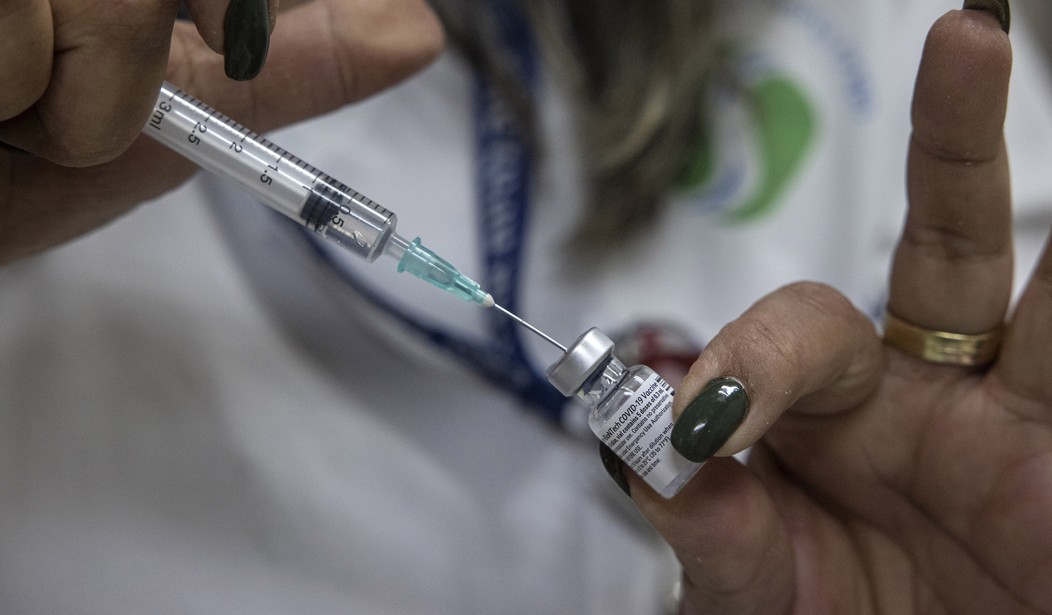Trying to get a COVID vaccine is almost as impossible as trying to get an abortion – or so argues one writer for Slate. There’s just one catch: While vaccines can save lives, every abortion intentionally destroys an innocent human life.
On March 16, Slate writer Dahlia Lithwick wrote a piece with the headline asking, “Will This Vaccine Debacle Help Us Realize Why Abortion Access Is Such a Big Deal?” Long answer short, Lithwick hoped that it would. While vaccine access, like abortion access, is available for the “wealthy and the lucky,” what Americans are witnessing today is “what happens whenever a woman’s reproductive health care facility shuts down,” she said.
Lithwick, who focuses on law and the courts for Slate, described the difficulties that Americans face in accessing COVID-19 vaccines.
“If your life is anything like mine, someone you know was vaccinated last week because someone else sat up all night, hitting refresh on an obscure website until they found an open appointment,” she began. “Someone else you know probably just got their shot because their son or daughter sat on hold for hours on a phone line, until someone picked up and slotted them into a complex health system. Someone else you may know hopped in a car to drive across state lines, for several hours, to get a shot in some other jurisdiction.”
This, she insisted, is also the scenario for women who want an abortion.
“[W]hat you are witnessing is precisely what happens whenever a woman’s reproductive health care facility shuts down,” she argued. “Access to vital, lifesaving health care becomes purely a function of whom you know, how fluent in English and how mobile you may be, and, of course, how much money you have.”
Recommended
Except for one catch: abortion isn’t lifesaving. And, according to Gallup, a higher percentage of Americans call abortion “morally wrong” rather than “morally acceptable.”
Still, Lithwick argued, while today’s vaccine scenario might be new for Americans, it’s not new for women seeking abortion.
“This may be a first for you, but for millions of women, especially in states that have closed virtually all of their abortion clinics in recent years, this is how reproductive health care currently works in America,” she warned.
On top of that, she said, the American health care system is discriminatory.
“Learning to navigate these fragmented systems can take days,” she said, “And if you aren’t fluent in English, computer-savvy, free to take time off work, and well connected, you will probably get vaccinated after those who are.”
That reminded her of abortion access.
“What we do know about states that impose onerous TRAP [Targeted Regulation of Abortion Providers] laws is that the public health impacts have always fallen disproportionately on people of color and the poor,” she claimed.
As an example, she pointed to Texas, where clinics closed after the state passed a bill in 2013 requiring abortion facilities to meet the same standards as other surgical facilities, among other things.
“Vaccine access as it’s rolled out across the country highlights the same problems that were laid bare when Texas shuttered clinics,” she said. “It has been an example of what can happen when capitalism and scarce medical resources collide.”
Right now, she continued, “we are witnessing the stark division between the medical haves and have-nots, and yet again it’s got nothing whatever to do with moral virtue or medical need.”
“Vaccines will go—as reproductive care has always gone—to the wealthy and well-connected, to those with resources and networks, to those with work flexibility, ample child care, and the ability to travel,” she added. “Eventually, everyone will ‘have access,’ but the same burdens and worries, limitations and encumbrances, that make it all but impossible for poor or non-English-speaking women in Mississippi and Missouri to access lifesaving reproductive care will present again when it comes to lifesaving COVID protection care.”
Except for that, again, while vaccines save lives, a successful abortion always ends a life. But Lithwick only doubled down on her argument.
“We are doubtless a few short months away from the time at which we will begin to hear that there is simply something ‘wrong’ with those who haven’t been vaccinated yet, that they were too lazy or unmotivated or distracted,” she said. “That’s what was said about poor women seeking to terminate their pregnancies, too.”
“As abortion clinics continue to close around the country, the pandemic should remind us that the pattern is long-standing, and that basic health care is still largely for the wealthy and the lucky,” she added.
Lithwick is right that Americans should have access to health care – lifesaving health care. This might include vaccines, maternal care, prenatal care. Not abortion.
























Join the conversation as a VIP Member